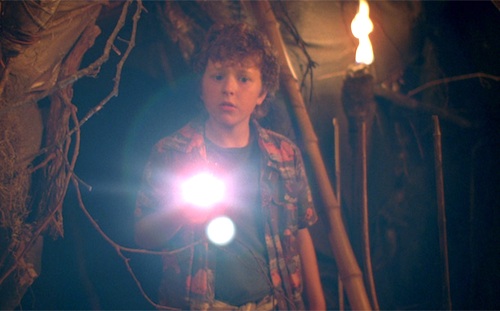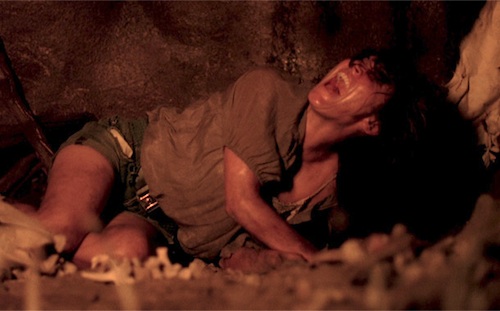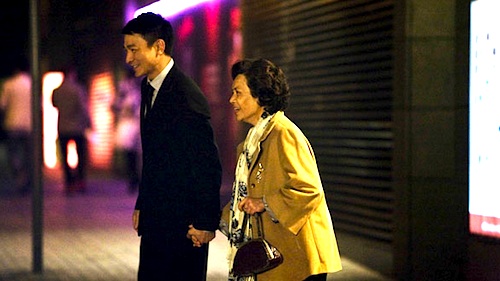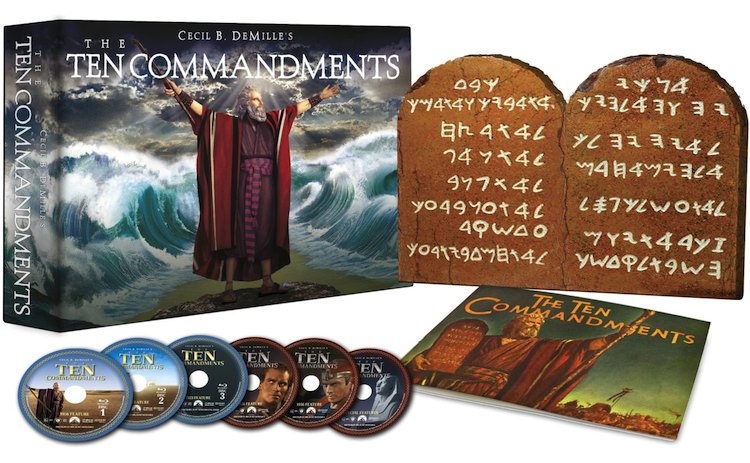
By Joe Bendel. This small town carries of load of bad karma. It all started with the cave-in at the now defunct mine, but it also has a great deal of closed door angst to contend with, as well as a local boogeyman. Three pre-teens discover the truth behind a related series of mysterious abductions in Gregory Wilson’s Ghoul (promo here), an original adaptation of Brian Keene’s novel produced by Modernciné, which airs on the Chiller TV network this Friday the thirteenth.
Timmy Graco is the most fortunate of the trio of friends. His dad is a bit of a hardcase about his chores, but that is it. It is pretty obvious Barry Smeltzer’s father beats him like a rented mule. Doug Keiser’s problems will be revealed later in the film, but it is safe to say his father’s absence troubles him greatly. When they can evade their parents, they hang in their subterranean club house in the cemetery where Smeltzer’s father works as the drunken caretaker.
The first death in Ghoul is from natural causes: Graco’s beloved grandfather. However, many more people start disappearing under mysterious circumstances around the cemetery. That does not dissuade the three boys from wanting to explore the tunnel they accidentally discover in the cemetery service shed, but fate conspires to send other clueless victims in first.

Throughout the film, Graco consults his faux-E.C. Comics as a model of how to deal with the uncanny. Essentially, this means Ghoul start out promising to be Creepshow but evolves into a sinister variation on the Goonies. Probably shot on a budget under $500, the tunnel scenes actually look decently ominous. It is also cool to see Catherine Mary Stewart (star of Night of the Comet, the greatest George Romero rip-off ever), even if as Graco’s mother she only gets lines like “come to dinner” or “it’s time for bed.” However, to put it diplomatically, viewers will probably not be taking down most of the young cast-members names for future reference.
Despite the limitations of ensemble and effects, Wilson successfully conveys a sense of the past’s evil influence on the present and a general lurking dread. Viewers get an impression of what readers probably responded to in Keene’s novel and why Wilson and the Modernciné team wanted to film it. It is also worth noting that the town pastor is not an immoral hypocrite, which is quite the welcome departure from traditional horror movie clichés. Though admittedly flawed, the evocative atmosphere and vibe of Ghoul is still worth checking out on television, especially on Friday the thirteenth. After a special buzz-generating screening at this year’s Slamdance Film Festival in Park City, Ghoul premieres this Friday on Chiller TV.
Posted on April 11th, 2012 at 9:07am.





